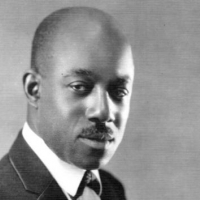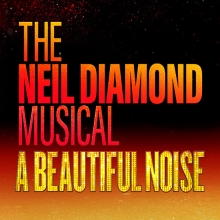Eubie Blake

Eubie Blake, christened James Hurbert Blake, was born in Baltimore, Maryland on February 7, 1883, the son of John Sumner Blake, a stevedore and laundress. His parents, who were former slaves, bore eleven children of which only Eubie survived to adulthood.
At the age of five while shopping with his mother in a store in Baltimore, young Eubie climbed up onto an organ stool and proceeded to give his first concert on the organ. After much coaxing from the store manager, a $75 organ was placed in the Blake home at the cost of 25c a week and Eubie Blake s career began.
Little would anyone envisage on that day, that 90 years later, Eubie Blake would still be playing his music albeit with far greater dexterity. Nor would anyone have imagined that at 95 years of age, Eubie Blake would still be giving concerts, touring colleges and universities, meeting and playing for the President of the United States at the White House and doing television shows. But that was Eubie Blake, a gentle man of incredible abilities and talents whose career spanned the horse and buggy days to the space age.
At the age of six, he started taking piano lessons and he was later taught musical composition by Llewelyn Wilson, an accomplished musician who at one time conducted an all-Negro Symphony Orchestra sponsored by the city of Baltimore.
Eubie s mother, a very religious woman, took great exception to the syncopation that he put into playing her church hymns. Syncopation, whose source was African, took on special forms in the American plantation as a strong evocation of the anger towards the status quo and the yearnings for freedom in this country.
Near the end of the 19th Century, Eubie Blake got his first job playing piano at Agnes Shelton s sporting house in Baltimore. On July 4, 1901, he made his professional debut in Fairfield, Pennsylvania with Dr. Frazier's Medicine Show where he played the melodeon (an old keyboard instrument sometimes called the American organ) and occasionally did buck dancing on the back of a truck. He then toured as a buck dancer in In Old Kentucky (which played in New York s Academy of Music in 1902), and a year later he returned to Baltimore as a pianist at Greenfeld s Saloon. Patrons at Greenfeld s and Annie Giley s sporting house heard him play his Charleston Rag , his first ragtime composition which he composed in 1899. Following a short stay in New York in 1905, he became a pianist at Baltimore s Middle Section Assembly Club.
I made my debut there on a Sunday night, Eubie recalled, when there was the damnedest storm I d ever seen. I was scared as my mother had me trained to religion. I saw it as a sign for me to get out of that kind of life.
In 1907, Eubie was playing at the Goldfield Hotel in Baltimore which was built by the lightweight champion of the world, Joe Gans. Because Gans was a celebrity, the hotel drew many white patrons and was one of the first establishments to entertain to mixed races. My first partner, Madison Reed, was with me then. It was a happy time then when Joe Gans was the champion and symbol to all of us, said Blake.
Eubie then played numerous night spots in Atlantic City, New Jersey (Ben Allen s, Kelley s, The Belmont, The Boat House) and at the same time, he continued to compose.
In 1915, he was to meet the man who would be his partner for the next 60 years, singer, actor, conductor and lyricist Noble Sissle.
Noble Lee Sissle, who was born in Indianapolis, Indiana on July 10, 1889, was in Baltimore working with Joe Porter s Serenaders at River View Park. Sissle and Blake s first collaboration was on a song for Sophie Tucker. She was playing at the Maryland Theatre in Baltimore, recalled Blake, and she wanted to give a helping hand to Negro songwriters. So Sissle and I, with the help of Eddie Nelson, wrote It s All Your Fault. She liked it, put it in her show and us on the map. The song was published and was popular in Baltimore. We ll never forget her.
Later they both joined the famed James Reese Europe s Society Orchestra and when that was disbanded, they went into vaudeville as the Dixie Duo. In time they billed themselves as Sissle and Blake and were the first black vaudeville team to play in tuxedos and one of the first to play without burnt cork on their faces.
At a NAACP benefit in Philadelphia in 1920, they met Flournoy E. Miller and Aubrey Lyles, a veteran comedy-dancing act. Miller and Lyles believed that Sissle and Blake s music had the theatrical quality they had been searching for to try to create a musical comedy theatre piece to put blacks back on Broadway where they had been in scarce numbers in the previous years.
The result of this meeting would make theatrical history, for out of this newly formed team, the hit Broadway musical Shuffle Along would emerge.
Shuffle Along opened at the 63rd Street Theatre in New York City on May 23, 1921. It was the first show on Broadway written, produced, performed and directed by American blacks. The show, a blending of ragtime and operetta set around a plot of a three-way mayoralty race in a small southern town, brought back black artistry to the core of the American blacks. The musical, which introduced jazz dancing to Broadway, left an indelible impression on the future form of the Broadway musical and was a prime stimulant to the black cultural renaissance of the 1920 s. Blacks were never again systematically barred from the Broadway stage, as they had been in the decade before the play s opening.
In addition, Shuffle Along featured the legendary Josephine Baker, Florence Mills and Paul Robeson as well as Fredie Washington who became an exotic dancer and lead actress in Imitation of, Elida Webb who became a choreographer an director of Broadway musicals both black and white, and Katherine Yarborough who went on to become one of the first black artists to appear with a white opera company (AIDA, 1933, Chicago).
Shuffle Along also paved the way for creative efforts of James P. Johnson, Luckey Roberts, Andy Razaf, Fats Waller and many others. Its crowning glory was score which included I m Just Simply Full Of Jazz, Bandana Days, In Honeysuckle Time, Gypsy Blues, If You ve Never Been Vamped by a Brownskin, Love Will Find a Way, and I m Just Wild About Harry. The latter won additional recognition when it became Harry Truman s presidential campaign song in 1948.
Eubie Blake found Shuffle Along a realized dream. He had long been in love with the music of Oscar Straus, Franz Lehar and Victor Herbert. He had also fallen under the spell of the magic of Bert Williams and George Walker whose shows In Dahomey (1903), Abyssinia (1906) and Bandanna Land (1908) had been well received. In addition, he was influenced by Bob Cole and the Johnson brothers, James Weldon and J. Rosamond who wrote the operettas The Shoo-Fly Regiment (1907) and The Red Moon (1909). Now Eubie Blake would find himself to be a source of inspiration and encouragement for black artists all over the country.
Following the success of Shuffle Along on Broadway and the many road companies, Sissle and Blake wrote twelve songs for Elsie (1923) contributed music to reviews by Charles Cochran and Andre Charlot including You Were Meant For Me for Charlot s London Calling (1923), and wrote the complete score for their own production of The Chocolate Dandies (1924) from which Dixie Moon was a great success.
In the late 20 s while Noble Sissle was in Europe with his own orchestra, Eubie wrote As Long As You Live and Blues, Why Don t You Let Me Alone followed by the musical score for Lew Leslie s Blackbirds of 1930 on which he collaborated with Lyricist, Andy Razaf. Memories Of You was a hit from that show. Other editions of Shuffle Along followed (in 1932 and more recently, in 1952), and in 1937 Eubie wrote the music for Swing It with lyricist Joshua Milton Reddie.





